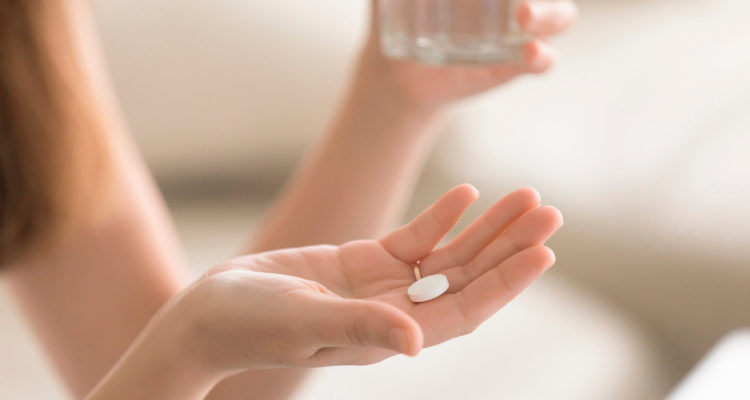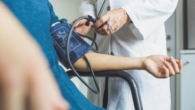
Why you can not combine alcohol and antibiotics
0
Actually you can. But not always.
It will not be possible to say exactly whether it is possible or not to drink alcohol with antibiotics. All because antibiotics are different. Everyone has their own connection. If you do not know exactly what alcohol is safe for your drug, do not drink. And now let's understand in more detail what to do.
What are antibiotics
Antibiotics are a large group of medicinal substances that help fight bacterial infections. They either kill bacteria or prevent their reproduction. Antibiotics can save lives for many diseases.
The group of antibiotics includes many substances with their own chemical formulas, indications, contraindications and side effects. It is impossible to give general recommendations on their reception. Some should be consumed before meals, some after. Some should be drunk for weeks, others only for a few days. Therefore, the main rule is as follows: take only as prescribed by a doctor and in accordance with his recommendations. If in doubt, read the instructions.
Why you should not drink alcohol with antibiotics
In the body, antibiotics interact with acids, enzymes, hormones, etc. If antibiotics react with incompatible substances, the effect of taking them will be the one that was expected. For example, with some drugs, side effects will become more pronounced: nausea, vomiting, abdominal pain, hyperemia (redness of the skin), and liver damage.
Many have heard that one of the complications of alcoholism is cirrhosis of the liver. It appears because enzymes secreted by the liver are responsible for the breakdown and processing of ethyl alcohol in the body. But it is a similar story with many medicines. When enzymes are busy with alcohol, they can break down the antibiotic, so it is not completely removed from the body. In this case, an additional load falls on the liver. This can lead to an exacerbation of chronic diseases or simply a malfunction of the organ.
Go to the hospital immediately if, after mixing alcohol and antibiotics, you have a fever, chills, joint pain or swelling, bruising, skin rash, itching, nausea or vomiting, severe stomach pain, or if the whites of the eyes and skin turn yellow. This indicates liver damage.
There is another side to this process. If the enzymes do not break down the antibiotic, it is less effective and eliminates the infection. Then it turns out that you are being treated for nothing. And failure to follow the instructions for taking antibiotics can lead to problems: from exacerbation of the infection to drug resistance.
In addition, when consuming alcohol and drugs, unwanted reactions from the nervous system may occur: drowsiness, dizziness, confusion. In this case, it is better not to get behind the wheel and not to operate complex mechanisms. Another consequence of the drug-alcohol cocktail is a severe hangover.
What are the exceptions
As we have already said, antibiotics are a very large group of drugs. Not all of them are incompatible with alcohol, if consumed in moderate doses – up to 14 g of pure ethanol per day. This is approximately 40 ml of strong alcohol, 330 ml of beer or 150 ml of wine. Most often, antibiotics prescribed for relatively mild infections are allowed.
| Antibiotics | Combination with alcohol in moderate doses |
| Oral penicillins | Allowed |
| Fluoroquinolones | Allowed |
| Tetracycline | Allowed |
| Azithromycin | There is no exact data. With great caution |
| Fluconazole | There are no exact data. With great caution |
| Erythromycin | No exact data. With great caution |
| Doxycycline | No exact data. With great care |
| Trimethoprim-sulfamethoxazole | There is no exact data. With great care |
| Oxazolidinones | No exact data. With great care |
| Metronidazole | Not possible |
| Cephalosporins | Not possible |
| Antituberculosis antibiotics | Not possible |
This is a very exemplary list that does not take into account many factors: dose, duration of administration, health status and combination with other drugs. If the doctor has prescribed an antibiotic, be sure to consult with him. Maybe you just can't drink alcohol.
If you can't talk to a doctor, look for information in the instructions for the drug. If there is no specific paragraph on alcohol, see the “combination with other drugs and substances” or “special recommendations” section. But always when you doubt whether you should drink or not drink.
How much alcohol can you drink after antibiotics
Antibiotics are not removed from the body immediately. Medicinal substances can take effect several days after the last dose. This term depends on the characteristics of the drug.
As a rule, the time of elimination from the body is indicated in the instructions of the “pharmacokinetics” section. But if it's too difficult to figure out, just add 72 hours to the moment of the last antibiotic intake – this should be enough so that substances from the drugs do not mix with ethanol.









Leave a Reply